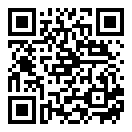Pages:
125-141
Receive Date: 2026/02/08
Accept Date: 2026/02/08
Abstract:
The correlation of ethics and economics in the neoclassical orthodox school has always been a problem. Using concepts of utility and preferences, the proponents of this school attempted to correlate morality and economics within the context of the welfare economy. Due to the essential ambiguity of the meaning of utility within the individualistic methodology of neoclassical economics, this correlation does not meet a desirable end; because by aggregating individual choices one cannot achieve a social choice in the welfare economics. Using an analytical approach, this paper studies the possibility of applying Allameh Tabatabai's conventions (i’tibariat) theory to establish a correlation between ethics and economics. According to the research findings, this theory can make a correlation between moral and economic values. In this context, utility is considered as a social convention. Given the interpersonal nature of conventions, desirability will be sufficiently objective to serve as the link between moral and economic values. Thus, Allameh Tabatabai's theory of conventions provides a reasonable link between ethics and economics. This approach can also be considered as the beginning of a methodological study in Islamic economics based on Allameh's theories.
چکیده و کلیدواژه فارسی (Persian)
Title :اقتصاد، اعتباریات و مسئله اخلاق
Abstract:
پیوند بین اخلاق و اقتصاد در مکتب ارتودوکس نئوکلاسیکی همواره محل بحث بوده است. طرفداران این مکتب تلاش کرده اند با استفاده از مفاهیم «مطلوبیت» و «ترجیحات» و در چارچوب اقتصاد رفاه، بین اخلاق و اقتصاد پیوند برقرار کنند. به خاطر ابهام ذاتی معنای «مطلوبیت» در چارچوب روش شناسی فردگرایانه اقتصاد نئوکلاسیک، این پیوند به سرانجام مطلوب نمی رسد؛ زیرا با تجمیع انتخاب های فردی، نمی توان به یک انتخاب اجتماعی در اقتصاد رفاه رسید. این مقاله با استفاده از روش «تحلیلی» امکان به کارگیری نظریه «اعتباریات» علامه طباطبائی برای ایجاد رابطه بین اخلاق و اقتصاد را بررسی می کند. بنا بر یافته های پژوهش، استفاده از مفهوم «اعتباریات» علامه، می تواند به ایجاد رابطه بین ارزش های اخلاقی و اقتصادی بینجامد. در این چارچوب، «مطلوبیت» به مثابه یک اعتبار اجتماعی در نظر گرفته می شود. با توجه به ماهیت بین الاذهانی اعتباریات، مطلوبیت از عینیت و اطلاق کافی برای برقرای پیوند بین ارزش های اخلاقی و اقتصادی برخوردار است. از این رو، نظریه «اعتباریات» علامه طباطبائی امکان پیوندی معقول بین اخلاق و اقتصاد را فراهم می آورد. این رویکرد می تواند به عنوان شروعی بر یک روش شناسی در اقتصاد اسلامی بر مبنای نظریات علامه نیز به شمار آید.
References:
- پارسانیا، حمید و همكاران، 1393، «دلالتهای نظریه اعتباریات برای تحول در علوم انسانی»، اسلام و مطالعات اجتماعی، ش5، ص 23-48.
- زاهدیوفا، محمدهادی و همكاران، 1395، «نقد ابتنای اقتصاد اسلامی بر مطلوبیتگرایی دوساحته، درآمدی بر تکلیف گرایی دینی»، مطالعات اقتصاد اسلامي، ش17، ص 59-84.
- دباغ، سروش و حسین دباغ، 1388، «اعتبار و حقيقت در اخلاق؛ افتراق و اشتراك اخلاق طباطبايي و اخلاق ويتگنشتاين متقدم»، فلسفة دين، ش14، ص 175-192.
- سروش، عبدالکریم، 1358، دانش و ارزش، تهران، ياران.
- طباطبائی، محمدحسین، 1332، اصول فلسفه و روش رئالیسم، تهران، افست.
- ـــــ ، تفسیر المیزان، 1374، ترجمة سیدمحمدباقر موسوی همدانی، چ پنجم، قم، دفتر انتشارات اسلامی.
- ـــــ ، 1385، اصول فلسفه و روش و رئاليسم، تهران، صدرا.
- عربی، هادی و همكاران، 1392، «نظريه «اخلاق هنجاري» و دلالتهاي آن در سياستگذاري اقتصادي؛ درسهايي براي اقتصاد اسلامي»، معرفت اقتصاد اسلامی، ش۸، ص 29-50.
- معرفی محمدی، عبدالحمید، 1392، «اخلاق، عقلانیت و مسئلة نظم در علم اقتصاد»، معرفت اقتصاد اسلامی، ش9، ص 106-129.
- ـــــ ، 1395، «اقتصاد اسلامی: حکمت نظری یا حکمت عملی؟»، معرفت اقتصاد اسلامی، ش15، ص 63-78.
- Hinman, Lawrence, 2000, Ethics: A Pluralistic Approach to Moral Theory.
- Feldman, A, 2008, The New Palgrave Dictionary of Economics, Second Edition, Eds, Steven N, Durlauf and Lawrence E, Blume, Palgrave Macmillan.
- Lee, S. H, 2006, Essentials of Unification Thought: The Headwing Thought, Tokyo, Unification Thought Institute.
- Putnam, H, 2000, The Collapse of the Fact/Value Dichotomy and Other Essays, Cambridge, MA, Harvard University Press.
- Riley, Jonathan, 2008, “utilitarianism and economic theory”, in: The New Palgrave Dictionary of Economics, Second Edition, Eds, Steven N, Durlauf and Lawrence E, Blume, Palgrave Macmillan.
- Samuelson, Paul A, 1938, “The Empirical Implications of Utility Analysis”, Econometrica, P. 344-356.
- Rawls, John, 1993, Political Liberalism, New York, Columbia University Press.
Cite this article:
RIS
Mendeley
BibTeX
APA
MLA
HARVARD
VANCOUVER
APA | MLA | HARVARD | VANCOUVER
moarefi, abdolhamid.(2026) Economics, Conventions (i’tibariat) and Ethics. Ma`rifat-e Eghtesad-e Islami, 10(2), 125-141
APA | MLA | HARVARD | VANCOUVER
abdolhamid moarefi."Economics, Conventions (i’tibariat) and Ethics". Ma`rifat-e Eghtesad-e Islami, 10, 2, 2026, 125-141
APA | MLA | HARVARD | VANCOUVER
moarefi, A.(2026) 'Economics, Conventions (i’tibariat) and Ethics', Ma`rifat-e Eghtesad-e Islami, 10(2), pp. 125-141
APA | MLA | HARVARD | VANCOUVER
moarefi, A. Economics, Conventions (i’tibariat) and Ethics. Ma`rifat-e Eghtesad-e Islami, 2026; 10(2): 125-141





